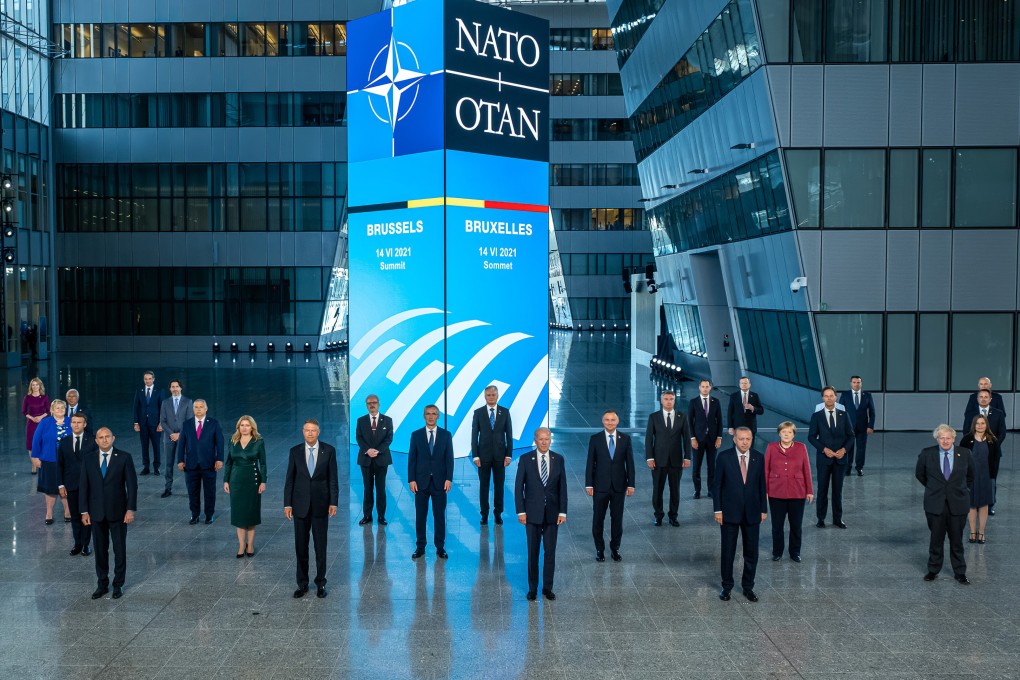Advertisement
China takes aim at US efforts to ‘sow discord’ with Europe
- Beijing urges European countries not to follow the US line
- The United States is sick, Chinese foreign ministry spokesman says
Reading Time:3 minutes
Why you can trust SCMP
99+

China has accused the United States of trying to sow discord in its relations with Europe and called on European nations not to tie themselves to the US strategy.
China also vowed to take action against Nato, which labelled Beijing a challenge to the security alliance.
Analysts said China was trying to emphasise the differences in interests between European nations and the US ahead of Tuesday’s summit between US President Joe Biden and the European Union.
Advertisement
The West, led by the US, has stepped up the rhetoric against each other this week, with the Group of 7 calling for a fresh investigation into the origins of the coronavirus pandemic and for China to respect human rights.
The G7’s criticism of China was the strongest since the Tiananmen Square crackdown more than 30 years ago. It was followed on Monday by Nato saying China’s rising military power and cooperation with Russia presented “systemic challenges”.
Advertisement
Chinese foreign ministry spokesman Zhao Lijian responded on Tuesday, saying “China and Europe are comprehensive strategic partners, not systemic rivals”, and the US was trying to create barriers between countries.
Advertisement
Select Voice
Select Speed
1.00x